- 1-Understanding-the-Causes-of-Noise-from-Indoor-Trampolines
- 2-Selecting-the-Right-Location-to-Minimize-Sound
- 3-Using-Padding-and-Mats-for-Noise-Absorption
- 4-Regular-Maintenance-to-Prevent-Excessive-Noise
- 5-Installing-Soundproofing-Materials-Around-the-Trampoline-Area
- 6-Real-Life-Tips-from-Trampoline-Users-for-Noise-Reduction
- 7-Where-to-Find-Quality-Noise-Reduction-Products-for-Trampolines
1. Understanding the Causes of Noise from Indoor Trampolines
Noise from indoor trampolines can stem from multiple sources, including the spring mechanism, the mat’s impact sounds, and vibrations transmitted to floors and walls. Understanding these causes is the first step in effectively managing sound levels. Often, older trampolines with worn-out springs or mats produce louder noises. Additionally, the surface under the trampoline plays a significant role in noise amplification.
2. Selecting the Right Location to Minimize Sound
Choosing an appropriate spot for your indoor trampoline can greatly reduce noise disturbance. Ideally, place the trampoline on a floor with carpet or a softer surface rather than hard flooring like tile or hardwood, which reflects sound. Avoid positioning the trampoline near shared walls or below living areas to minimize impact on neighbors or family members.
3. Using Padding and Mats for Noise Absorption
Investing in quality padding beneath and around the trampoline can absorb much of the noise generated by bouncing. Thick foam mats or rubberized padding act as shock absorbers, reducing vibration and muffling impact sounds. Ensuring the trampoline’s frame is also well-padded prevents metal-on-metal noises and enhances overall quietness.
4. Regular Maintenance to Prevent Excessive Noise
Regular inspection and maintenance of your trampoline can prevent excessive noise. Tightening loose bolts, lubricating springs, and replacing worn parts ensure smoother operation and less rattling. Maintenance not only prolongs the trampoline’s life but significantly cuts down on unnecessary noise caused by mechanical wear.
5. Installing Soundproofing Materials Around the Trampoline Area
For serious noise control, consider adding soundproofing materials like acoustic panels or heavy curtains around the trampoline area. These materials absorb sound waves, preventing echoes and muffling the overall noise level. Wall-mounted panels or strategically placed rugs also contribute to creating a quieter environment.
6. Real-Life Tips from Trampoline Users for Noise Reduction
Many trampoline users recommend simple hacks such as timing trampoline use during less sensitive hours and encouraging lighter jumping styles to minimize noise. One user shared that placing tennis balls or similar soft objects under trampoline legs helped dampen vibrations noticeably.
These practical tips demonstrate that combining physical solutions with mindful use leads to the best results in reducing indoor trampoline noise.
7. Where to Find Quality Noise Reduction Products for Trampolines
For those seeking reliable noise reduction solutions, Trampoline Zone offers a curated selection of soundproofing accessories, padding, and trampoline models designed with quiet operation in mind. Their expert guidance can help you choose the best products to create a fun yet peaceful indoor environment.
Visit Trampoline Zone to explore innovative noise-reduction options and enjoy your indoor trampoline with less disruption and more enjoyment.

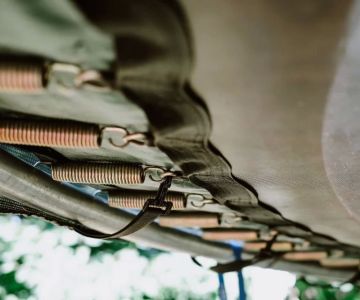
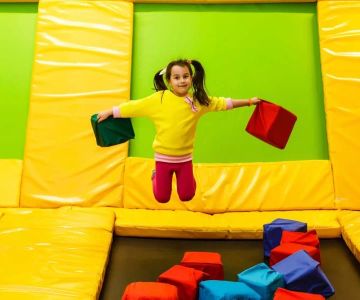
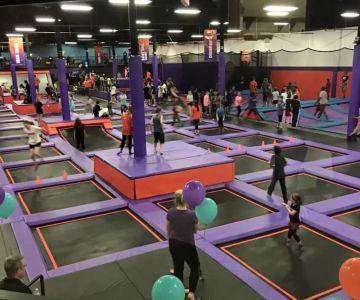
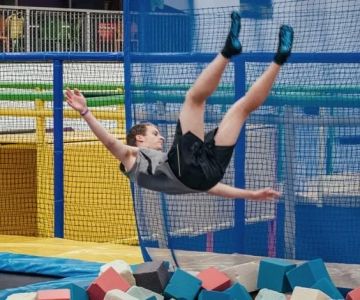
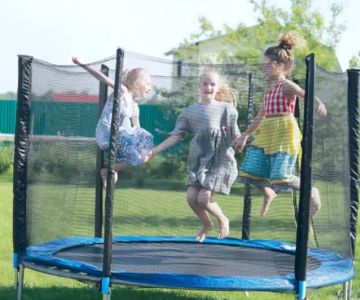
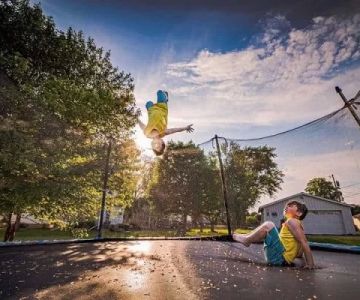
 Pump It Up Lake Forest Kids Birthday and More4.0 (280 reviews)
Pump It Up Lake Forest Kids Birthday and More4.0 (280 reviews) Urban Air Trampoline and Adventure Park4.0 (349 reviews)
Urban Air Trampoline and Adventure Park4.0 (349 reviews) Church Street Plaza4.0 (731 reviews)
Church Street Plaza4.0 (731 reviews) Fun City Adventure Park3.0 (162 reviews)
Fun City Adventure Park3.0 (162 reviews) Riki Tiki's Indoor PlayGround4.0 (35 reviews)
Riki Tiki's Indoor PlayGround4.0 (35 reviews) Urban Youth Park - South Bay4.0 (107 reviews)
Urban Youth Park - South Bay4.0 (107 reviews) Are Trampoline Parks Safe for Kids? Essential Guide for U.S. Parents
Are Trampoline Parks Safe for Kids? Essential Guide for U.S. Parents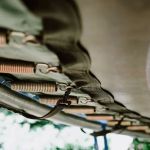 How Often Should You Replace Trampoline Springs? Tips for Proper Maintenance
How Often Should You Replace Trampoline Springs? Tips for Proper Maintenance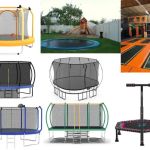 How Much Is a Trampoline? A Detailed Guide to Trampoline Costs and Buying Tips
How Much Is a Trampoline? A Detailed Guide to Trampoline Costs and Buying Tips Bounce Techniques for Stronger Legs: Effective Exercises and Tips
Bounce Techniques for Stronger Legs: Effective Exercises and Tips Essential Music Gear for Trampoline Dance: Complete Guide
Essential Music Gear for Trampoline Dance: Complete Guide Fun STEM Experiments Using Trampolines to Spark Curiosity and Learning
Fun STEM Experiments Using Trampolines to Spark Curiosity and Learning